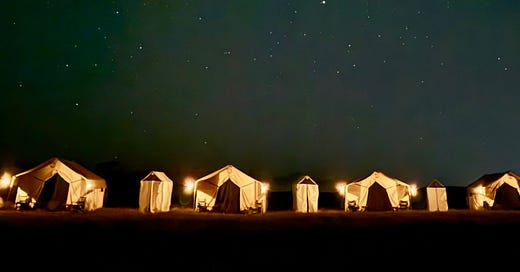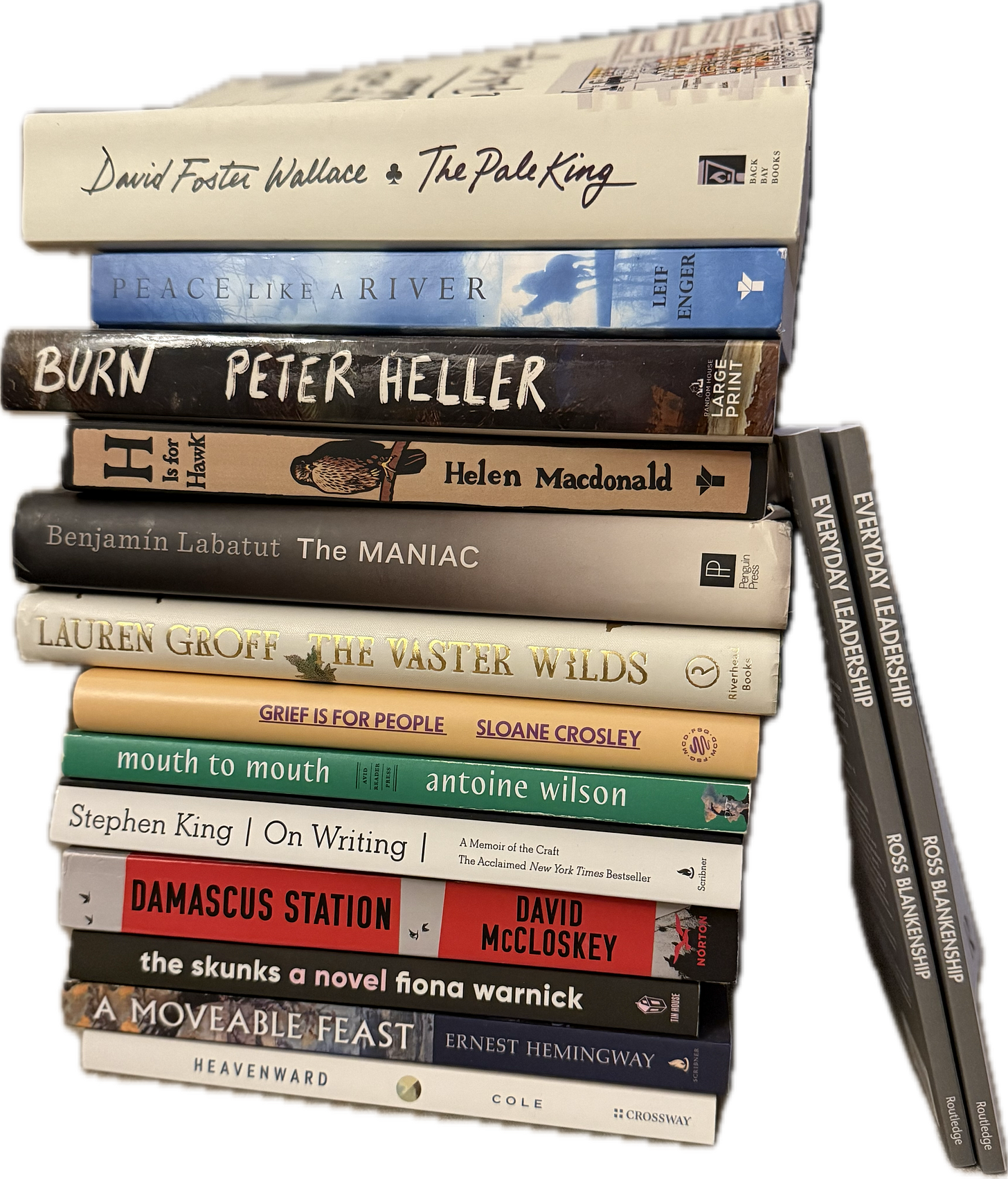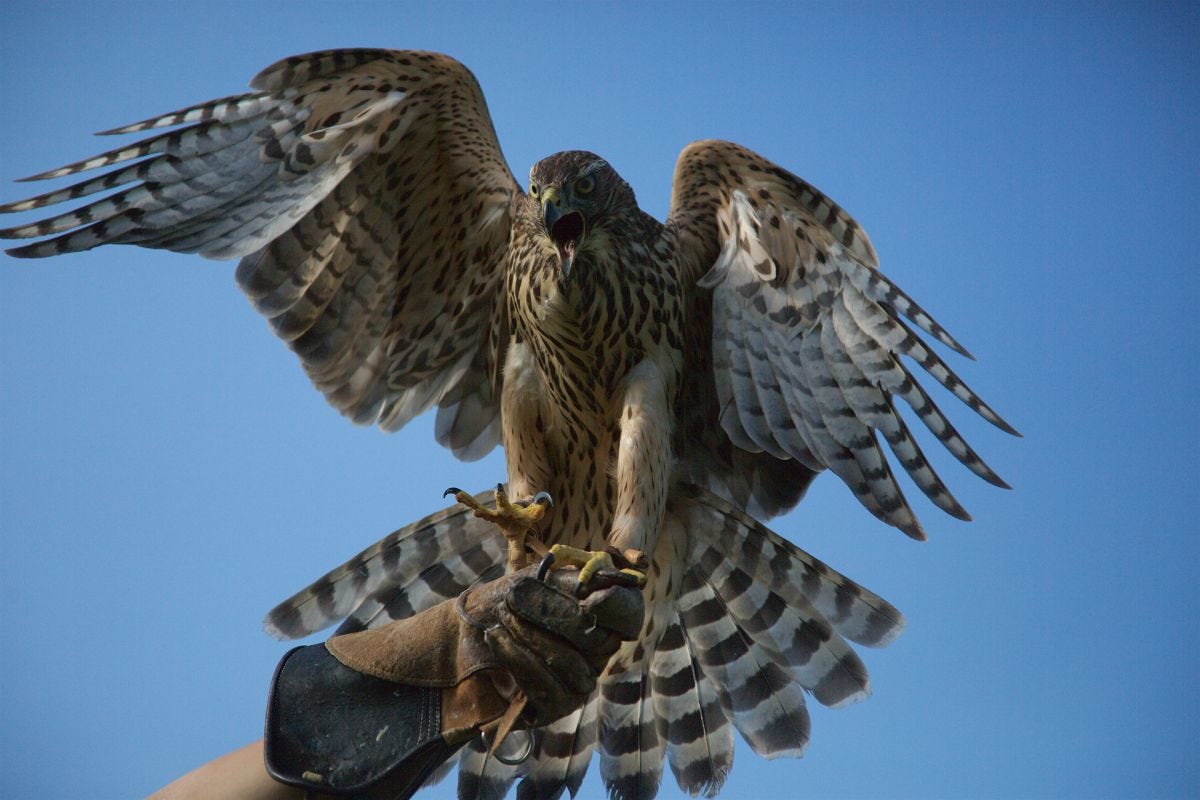I may have written about this before, but it’s top of mind again here at year end/beginning…a few years ago, in an interview, in response to the question what kind of things do you read? an executive said to me, “I only read nonfiction. Business books, pop psych, biographies…I only read things that can help me.”
That comment seemed so inherently wrong-headed that I didn’t even bother to follow up. Instead, I decided I’d just dwell on it for the next five or ten years.
What a limited scope for reading. What a missed opportunity for great writing. What a gruesome definition of help.
It feels so obvious to me that all kinds of writing can “help.”
Fiction, poetry, memoir; I’m certain that I’ve been more “helped” in my life by even just this poem and this novel than almost any other kind of writing. I’m not always convinced I know what I need to be reading, or what kind of insight will change my perspective in the most needful way. And when it comes to change - if that’s what we’re aiming for when we talk about help - I’m convinced that oblique strategies are often the most effective. And what about the pleasure of just reading? Not reading in pursuit of something, but resting in the simple joy of the act itself.
I felt sorry for this man.
Flash forward a few years to 2023 and my reading appetite, somewhat driven by my work and somewhat driven by finishing Everyday Leadership, had become dominated by non-fiction. So much so that a friend mentioned a novel to me, asked me if I had read it, and then stopped herself and said something like “Oh wait, you only read nonfiction, right?”
Oof.
Had I become this man? I didn’t think so. But, I did find myself skipping past short stories in the magazines I read; buying novels and letting them sit on my shelf; reading
here on Substack, but preferring his office hours essays to the short stories and commentaries.So I decided to try to read only fiction for the year.
Numbers were down, but I made it through 12.5 books, mostly fiction and memoir. Below I included a few notes and some favorite passages.
A Moveable Feast
This was among my best reading experiences ever. I had the good fortune to read this classic for the first time while in Paris for the first time for our 12th anniversary. It’s Hemingway’s memoiristic novel about his time in Paris. We even did a walking tour from the Ritz through St. Germain to Montparnasse stopping by places still haunted by Papa’s memory. More of this in life plz…
A line I loved:
“‘We need more true mystery in our lives, Hem,’” he once said to me. “‘The completely unambitious writer and the really good unpublished poem are the things we lack most at this time. There is, of course, the problem of sustenance.’”
And, of course, this:
“Paris was always worth it and you received for whatever you brought to it.”
Amen to that.
On Writing
“The scariest moment is always just before you start. After that, things can only get better.”
The Vaster Wilds
This is such an intense book and Groff is such an intense writer; it’s a masterwork in style and tone.
Loved this:
“But now she sensed the earth under her in its spin and knew herself to be a piece of it, necessary and large enough.
For a long moment, she saw herself lying in the very center of the palm of god’s hand, and the night was made of god’s fingers, curved to protect her against the blaze of eternity. And the starts and the moon were the space shining within. And the air felt good upon her head. The air brushed the pain out of her head with its long cold fingers.”
And this:
“It is a moral failure to miss the profound beauty of the world, said the voice in her mind.
Yes, she said aloud, for now she did see the sin in full.”
H is for Hawk
I know I’m about 10 years late to the party here but holy moly the writing in this book is electric.
It’s a sort of ode to life and death and grief and nature and to writing itself. It was pure pleasure to read. I now look at the hawks in my neighborhood with much more wonder - something close to longing?
Here is The. Best. Meet-cute. I’ve ever read… when Macdonald first encounters the hawk she believes will be hers to train:
“Another hinge untied. Concentration. Infinite caution. Daylight irrigating the box. Scratching talons, another thump. And another. Thump. The air turned syrupy, slow, flecked with dust. The last few seconds before a battle. And with the last bow pulled free, he reached inside, and amidst a whirring, chaotic clatter of wings and feet and talons and a high-pitched twittering and it’s all happening at once, the man pulls an enormous, enormous hawk out the box and in a strange coincidence of world and deed a great flood of sunlight drenches us and everything is brilliance and fury. The hawk’s wings, barred and beating, the sharp fingers of her dark tipped primaries cutting the air, her feathers raised like the scattered quills of a fretful porpentine. Two enormous eyes. My heart jumps sideways. She is a conjuring trick. A reptile. A fallen angel. A griffon from the pages of an illuminated bestiary. Something bright and distant, like gold falling through water.”
The Pale King
A book about bureaucracy and boredom, but also about how and why we come to do the work we do. It’s a novel in the style of a memoir with all that oddball self-aware dynamic DFW flair. I’m still finishing this one, but man does it have some lines that cut through. The things he writes about in this book feel super relevant to lots of things I’ve been thinking/writing about here, like this:
“[…] everything is on fire, slow fire, and we’re all less than a million breaths away from an oblivion more total than we can even bring ourselves to try to imagine, in fact, probably that’s why the manic US obsession with production, produce, produce, impact the world, contribute, shape things, to help distract us from how little and totally insignificant and temporary we are.”
And this:
[…] “‘To experience commitment as the loss of options, a type of death, the death of childhood’s limitless possibility, of the flattery of choice without duress - this will happen, mark me. Childhood’s end. The first of many deaths. hesitation is natural. Doubt is natural.’”
And this:
[…] “The truth is that the heroism of your childhood entertainments was not true valor. It was theater. The grand gesture, the moment of choice, the mortal danger, the external foe, the climactic battle whose outcome resolves all - all designed to appear heroic, to excite and gratify an audience. […] Gentlemen, welcome to the world of reality - there is no audience. No one to applaud, to admire. No one to see you. Do you understand? Here is the truth - actual heroism receives no ovation, entertains no one. No one queues up to see it. No one is interested.”
I’m a little inclined to rewrite that last one with the word “leadership” in place of “heroism” and point to the book I spent the most time with over the past year, which was, of course, Everyday Leadership.
Reading while writing is always a bit of a balancing act. Research is necessary to write about a thing, but read something too close to what you’re trying to write and you wind up just trying to write (or not write) that. I tend to enjoy letting my attention wander and letting my reading list shape shift as new interests pop-up, as friends publish books, and as I think about writing in different genres. In any case, cheers to reading and writing more in 2025.











I have had so many conversations like the one you had with that executive. It actually inspired me to write an entire piece about it (looking to publish that on this platform soon). Fiction is so vital to our moral imagination. There's a reason why there's a class at Harvard Business School that uses fiction (like Remains of the Day) to teach leadership.
Love this list. I read A Moveable Feast a few years ago and totally dug it. I can't imagine reading it in Paris. I have been wanting to read H is for Hawk for years now, so this was a great reminder. Also, what did you think of Peace Like a River?